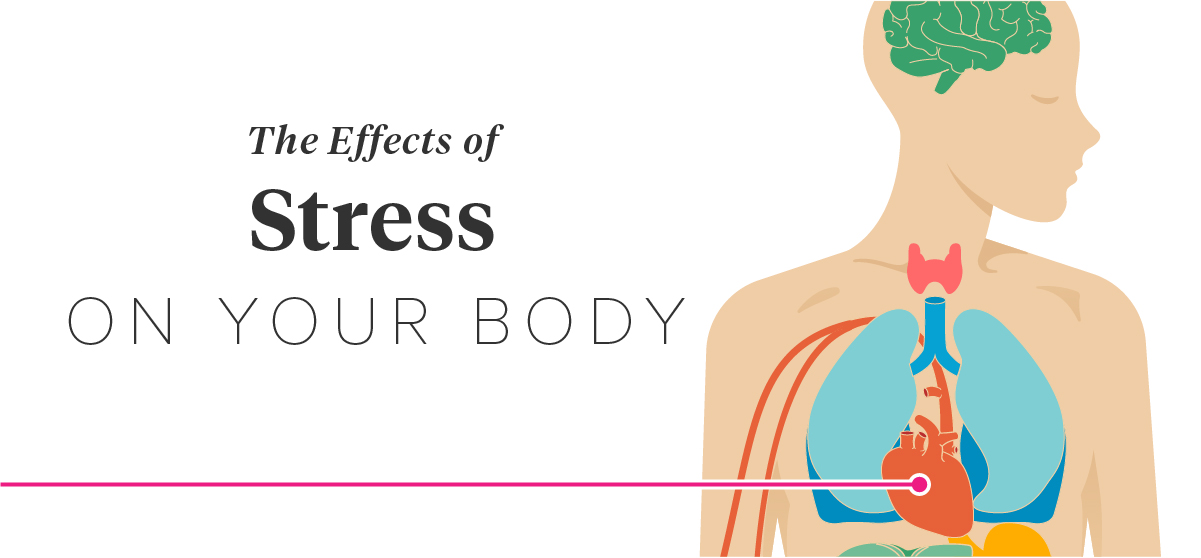Table of ContentsWhat Does Risk For Assaultive Behavior Is Highest In The Mental Health Client Who Does What? Mean?Some Ideas on What Is Mental Health Stigma You Need To KnowThe Only Guide to Why Mental Health Is Important
Psychological health conditions such as tension, anxiety, and anxiety may establish due to underlying, life-altering physical health issue, such as cancer, diabetes, and persistent pain. The most typical types of mental disorder are as follows: According to the Stress And Anxiety and Anxiety Association of America, stress and anxiety conditions are the most common type of mental illness.

The majority of people with an anxiety disorder will attempt to prevent exposure to whatever triggers their anxiety. Examples of stress and anxiety disorders consist of: The American Psychiatric Association define GAD as disproportionate concern that interrupts everyday living. People may likewise experience physical symptoms, includingrestlessnessfatiguetense musclesinterrupted sleepA bout of anxiety signs does not always require a specific trigger in individuals with GAD - how does school affect mental health.
An individual with GAD may sometimes feel anxiety with no trigger at all. People with a panic attack experience routine anxiety attack, which include sudden, overwhelming fear or a sense of imminent disaster and death. There are different kinds of fear: These might include a disproportionate worry of particular items, situations, or animals.
Find out more about simple phobias here. In some cases called social anxiety, this is a worry of going through the judgment of others. Individuals with social fear frequently limit their exposure to social environments. Discover more here. This term describes a worry of circumstances in which escaping might be hard, such as being in an elevator or moving train.
Check out everything about agoraphobia here.Phobias are deeply personal, and physicians do not know every type. There could be thousands of phobias, and what may appear unusual to a single person might be a severe problem that dominates every day life for another. Individuals with OCD have fascinations and compulsions. In other words, they experience constant, difficult ideas and an effective urge to perform recurring acts, such as hand cleaning.
During this type of occasion, the individual believes that their life or other people's lives remain in danger. They may feel afraid or that they have no control over what is happening. These feelings of trauma and worry might then add to PTSD.People might also refer to state of mind conditions as affective disorders or depressive conditions.
The Definitive Guide for According To Research, How Does The Public View Children And Teens With Mental Health Disorders?
Examples of state of mind conditions consist of: A private with major anxiety experiences a constant low state of mind and dislikes activities and events that they previously enjoyed. They can feel extended periods of unhappiness or severe unhappiness. A person with bipolar illness experiences unusual modifications in their state of mind, energy levels, levels of activity, and capability to continue with life.
Find out more about the different types of bipolar here. Lowered daytime triggers during the fall, winter season, and early spring months activate this kind of significant depression. It is most common in countries far from the equator. Find out more about SAD here.Mental health authorities are still attempting to figure out whether schizophrenia is a single disorder or a group of associated illnesses. Indications of schizophrenia generally develop between the ages of 16 and thirty years, according to the NIMH. The person willhave thoughts that appear fragmented, and they may also find it difficult to process info. Schizophrenia has negative and favorable signs. Favorable signs consist of misconceptions, thought conditions, and hallucinations. Negative symptoms consist of withdrawal, absence of inspiration, and a flat or improper mood. Nevertheless, individuals ought to look out for the following as possible indications of.
a psychological health condition: withdrawing from friends, family, and colleaguesavoiding activities that they would usually enjoysleeping excessive or too littleeating excessive or too littlefeeling hopelesshaving regularly low energyusing mood-altering compounds, consisting of alcohol and nicotine, more frequentlydisplaying negative emotionsbeing confusedbeing not able to finish daily jobs, such as getting to work or cooking a mealhaving consistent thoughts or memories that come back regularlythinking of triggering physical damage to themselves or othershearing voicesexperiencing delusionsThere are various techniques for managing psychological illness. Some techniques or treatments are more effective in combination with others (how to write progress notes mental health examples). An individual living with a chronic psychological disorder may pick.
different alternatives at various stages in their life. The individual requirements to work closely with a doctor who can assist them identify their needs and provide them with appropriate treatment. Cognitive behavior modification, direct exposure therapy, and dialectical behavior modification are examples. Psychiatrists, psychologists,.
psychotherapists, and some medical care physicians bring out this kind of treatment. It can assist people comprehend the root of their mental disorder and start to work on more healthful thought patterns that support daily living and reduce the risk of isolation and self-harm. Although these can not treat mental disorders, some medications can enhance symptoms and assist a person resume social interaction and a typical routine while they work on their mental health. A few of these medications work by improving the body's absorption of feel-good chemicals, such as serotonin, from the brain. Other drugs either improve the total levels of these chemicals or prevent their degradation or damage. Such modifications might consist of decreasing alcohol consumption, sleeping more, and consuming a balanced, healthy diet. People might need to take time far from work or fix issues with personal relationships that may be triggering damage to their psychological health. People with conditions such as a stress and anxietyor depressive disorder might take advantage of relaxation methods, which include deep breathing, meditation, and mindfulness. If you understand somebody at instant danger of self-harm, suicide, or harming another person: Ask the difficult question:" Are you thinking about suicide? "Listen to the individual without judgment. Call 911 or the local emergency number, or.
text SPEAK TO 741741 to communicate with a skilled crisis counselor. Stay with the person till expert help arrives. If you or somebody you know is having ideas of suicide, an avoidance hotline can help. The National Suicide Avoidance Lifeline is readily available 24 hr daily at 800-273-8255. Throughout a crisis, individuals who are tough of hearing can call 800-799-4889. Mental health includes our emotional, psychological, and social well-being. It affects how we believe, feel, and function as we handle life. It also helps determine how we manage tension, associate with others, and make options. Mental health is very important.
Our Why Is Mental Health Important Statements

at every phase of life, from youth and teenage years through the adult years and aging. They may be occasional or lasting. They can affect your capability to associate with others and operate every day. Mental illness prevail; over half of all Americans will be identified with one at a long time in their life. But there are treatments. People with mental illness can improve, and a number of them.
recover totally. For example, mental illness can raise your threat for physical illness such as stroke, type 2 diabetes, and heart problem (who led the reform efforts for mental health care in the united states?). There are various elements that can impact your mental health, including Biological factors, such as genes or brain chemistry Life experiences, such as injury or abuse Household history of mental illness Your.
way of life, such as diet plan, physical activity, and substance use You can also affect your psychological health by taking actions to improve it, such as doing meditation, using relaxation methods, and practicing gratitude.